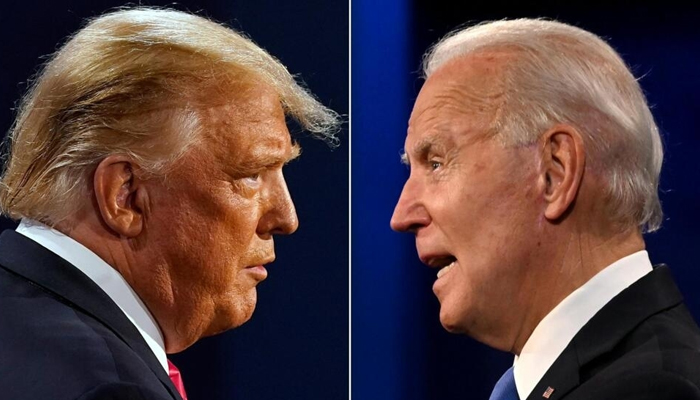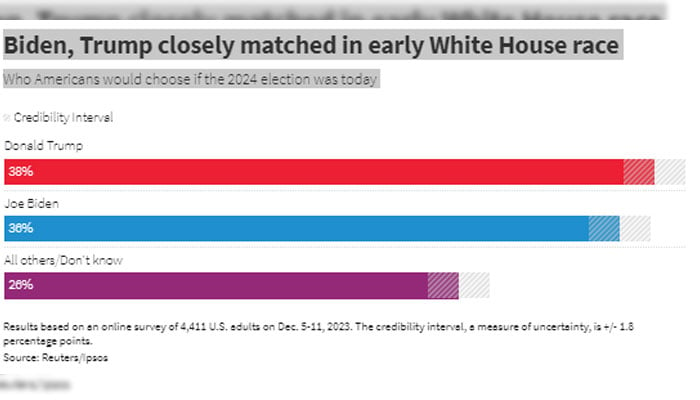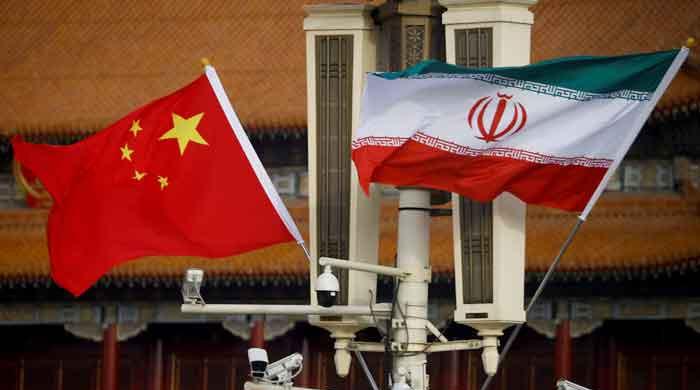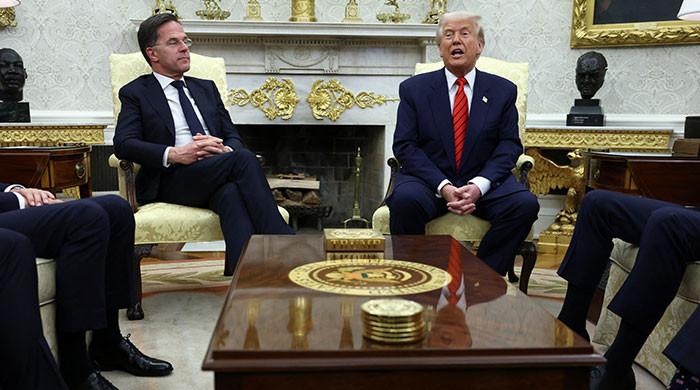Biden, Trump neck-and-neck in 2024 rematch, poll reveals vulnerabilities for both candidates
Poll, conducted online from December 5 to 11, shows Trump holding a marginal 2-point lead
December 12, 2023

A Reuters/Ipsos poll indicates that a prospective 2024 election rematch between President Joe Biden and former president Donald Trump would be fiercely contested, with both candidates grappling with significant vulnerabilities that could impact their chances of securing the White House.
The poll, conducted online from December 5 to 11 among 4,411 US adults, shows Trump holding a marginal 2-point lead in a head-to-head matchup, garnering 38% compared to Biden's 36%, while 26% remain undecided or open to choices. Both candidates face concerns that could sway voter sentiment.

Notably, Trump is the clear frontrunner for the Republican nomination, but the poll reveals a prevailing sense of apathy among many voters regarding a potential Biden-Trump rematch, with approximately six in 10 respondents expressing dissatisfaction with the two-party system and a desire for a third alternative.
An intriguing factor in the mix is the emergence of anti-vaccine activist Robert F Kennedy Jr, who has initiated an independent bid. The poll suggests that Kennedy could draw more support from Biden than Trump. When given the option to vote for Kennedy, Trump's lead extends to a 5-point advantage, with 36% support for Trump, 31% for Biden, and 16% for Kennedy.
The poll underscores the potential influence of third-party candidates in US elections, recalling instances such as Ross Perot in 1992 and Ralph Nader in 2000. The survey also highlights the Electoral College system's impact and the critical role played by voters in a select few states.











